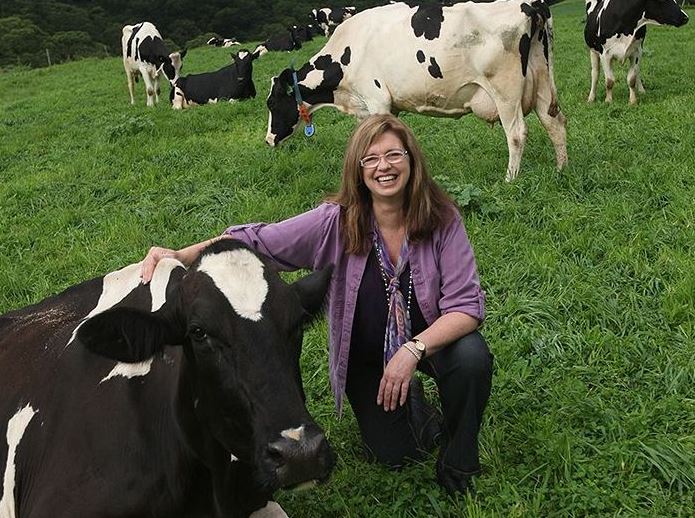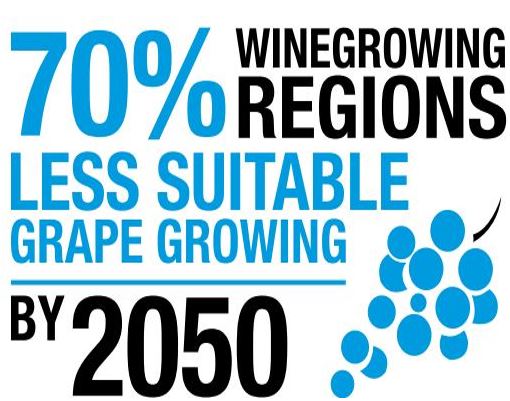Australian scientists are warning that climate change will not only come with serious problems for agriculture, but also for consumers of products from the farm and sea. Carrots will have no taste, pizza dough will be ‘bad’, and poor quality steaks will abound.
In a new report – “Appetite for Change” – leading scientists from the University of Melbourne, Professors Richard Eckard and David Karoly, explain what the impacts of changing rainfall patterns, extreme weather conditions, warming oceans, and climate-related diseases will have on the production, quality and cost of tomorrow’s food in Australia.
The scientists say their report has been launched ahead of this year’s Earth Hour, which falls on March 28th – when people will switch off lights and all devices for one hour. Earth hour is a worldwide grassroots movement uniting people to protect the planet.

Carrots will lose their flavour.
The authors say they have compiled a list of fifty-five household food items, from poultry, dairy products, seafood, grains, to fruit and vegetables, showing the effects of global warming on them.
Associate Professor Richard Eckard said:
“It’s definitely a wake up call when you hear that the toast and raspberry jam you have for breakfast, for example, might not be as readily available in 50 years time.”
“Or that there may be changes to the cost and taste of food items we love and take for granted like avocado and vegemite, spaghetti bolognaise and even beer, wine and chocolate.”
“It makes you appreciate that global warming is not a distant phenomenon but a very real occurrence that is already affecting the things we enjoy in our everyday lives, including the most common of foods we eat for breakfast, lunch and dinner.”
Heat-waves and bushfires
Of all the harms brought by global warming to Australian farms, the most significant will be the increases in heat-waves and bushfires, they predict.
Prof. Karoly said:
“Global warming is increasing the frequency and intensity of heatwaves and bushfires affecting farms across southern and eastern Australia, and this will get much worse in the future if we don’t act.”
“It’s a daunting thought when you consider that Australian farms produce 93% of the food we eat.”

The Report quotes Lynne Strong, a dairy farmer at Jamberoo, NSW, who said “Climate change is one of the top pressures facing farmers. If we as a community do not slow down climate change our access to a variety of nutritious, affordable foods will disappear. This is the reality.”
Some highlighted data from the new report:
Dairy Foods: heat stress on cows will reduce average yields by 10% to 25%, and in extreme heat-wave conditions by up to 40%.
Beef: farmers are likely to select heat-tolerant cattle breeds with lower meat-eating quality.
Carrots: carrots lose their flavour, texture and physical structure when it gets too hot. Warmer parts of Australia may stop growing carrots, with their production shifting to cooler regions of the country, such as Tasmania.
Bee Honey the quality of bee honey declines in very warm weather. Lower bee populations will also result in reduced pollination of fruit trees.
Potatoes: hot weather and high humidity can cause ‘late blight’ in potatoes, which rots the tubers, making them inedible.
Poultry: given that chickens are very sensitive to heat stress, the quality of their meat will suffer. With the incidence of droughts increasing globally, the price of chicken feed has become more volatile.
Beetroots: when the temperature rises above 27°C (80.6°F), beetroots start losing their coloring and there is a greater incidence of bolting (prematurely running to seed).
Rice: climate change is likely to lead to less reliable rainfall, which will affect the country’s current major rice-growing regions.
Wheat: warmer temperatures and declining rainfall will undermine wheat production. Iron and zinc concentrations in Australian wheat are forecast to drop by 5% to 10% by 2050, adding pressures linked to malnutrition.
Shellfish: global warming is raising the acidity levels of coastal waters, making it more difficult for shellfish to build their shells. Scottish scientists reported in December that mussel shells are becoming more brittle because climate change is making the sea more acidic.
Fruit & Nuts: temperatures in southern Australia will not fall low enough in the winter to signal fruit development.
Winegrowing regions

Most wine grape growers in Australia will be worse off by 2050. (Image: Appetite for Change)
Wine grape growing is Australia’s largest fruit industry, with most production coming from areas with a favourable Mediterranean climate.
Iconic grape-growing regions such as the Barossa and Riverland in South Australia, Margaret River in Western Australia, Sunraysia in Victoria, and Riverina in NSW will be badly affected by reduced rainfall and higher temperatures. The worst affected varieties will be Merlot, Cabernet Sauvignon and Shiraz.
In some parts of the country, such as Tasmania, conditions from wine grape growing will improve. However, 70% of the country’s current winegrowing regions with a Mediterranean climate will suffer and become less suitable for the industry.
National Manager of Earth Hour Australia and 2015 Australian Geographic Society Conservationist of the Year, Anna Rose, said the new report highlighted the vulnerability off all farmers in Australia and the food they produce.
Ms. Rose said:
“Aussies are proud of our farmers for feeding the nation but they are on the frontline of global warming and are already feeling the effects of rising temperatures and more extreme weather.”
“That’s why as part of Earth Hour on Saturday, March 28, millions of Australians will switch off their lights at 8:30pm to show their support for stronger action on global warming and for the future of Aussie food and farming.”
“If we don’t tackle this issue head on and make the move to renewable energy while committing to a stronger target to cut carbon pollution, Australia is on track to import more fruit and vegetables than we export by the end of the century.”
“This will result in higher food prices and poorer food quality, undermining our farmers’ livelihoods and the viability of our rural communities.”
The authors encourage Australian Earth Hour supporters to visit www.earthhour.org.au and register their participation for 2015, and use the hashtag #AppetiteforChange.
In the Foreword of the Report, Prof. Eckard writes:
“Australia is lucky to have a strong agricultural sector that plays a pivotal role in contributing to the Australian economy and defining Australian culture. In 2012-13 the gross value of total Australian agricultural production was $48 billion.”
“But Australian agriculture is at a turning point. We are halfway through what scientists refer to as the ‘critical decade’ to act on climate change.”
“And with less than a 1-degree global average rise in temperatures, climate change is already impacting a suite of Australian-grown commodities and will continue to impact farmers if stronger global efforts to reduce carbon pollution are not forthcoming.”
